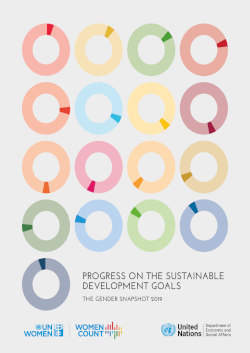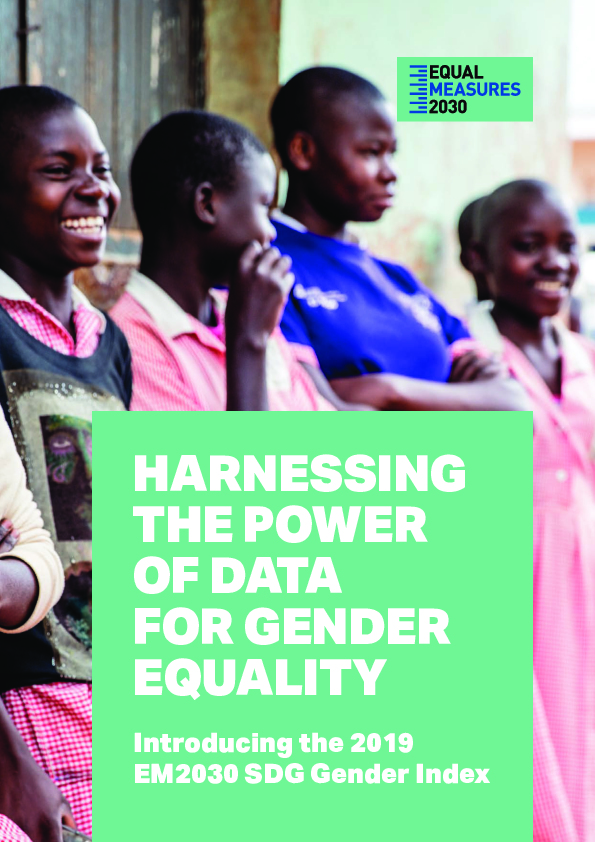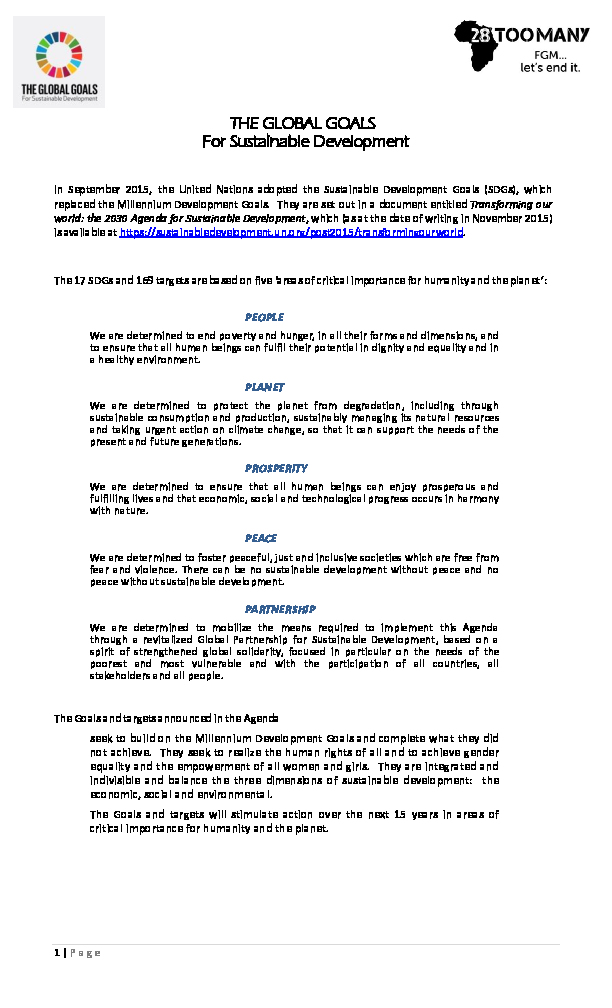Home | Research & Resources | SDGs & FGM/C
Key Findings
The 2030 Agenda for Sustainable Development was adopted by all UN member states in 2015 following on from the Millenium Development Goals (MDGs). There are seventeen Sustainable Development Goals (SDGs) that make up a call to action by countries to work together to end poverty, improve health, reduce inequality, and promote economic growth while also taking care of the environment. FGM/C is specifically mentioned in Goal 5: Achieve gender equality and empower all women and girls, but also relates to other goals connected to education, health, and poverty.
SDG Goal 5: Gender Equality
Elimination of FGM/C is a specific target of the SDG Goal 5: Achieve gender equality and empower all women and girls.
SDG Goal 3: Health
Eliminating FGM/C significantly contributes to improving the health and well-being of women and girls.
SDG Goal 4: Education
Girls who undergo FGM/C in preparation for (child) marriage are highly likely to drop out of school.
Reducing drivers of FGM/C
Improving food security, access to quality education, and maternal health outcomes all help reduce the drivers of FGM/C.
Global Commitments
FGM/C is specifically integrated into the Sustainable Development Goals within Goal 5, Target 5.3 Eliminate all harmful practices, such as child, early and forced marriage and female genital mutilation.
As FGM/C relates closely to quality education and maternal health, reducing FGM/C contributes to global goals in these areas.
The inclusion of FGM/C in the SDGs as a specific target highlights the significant negative consequences of FGM/C. It also creates a mechanism to call national governments to account and to advocate for policy and programmatic responses that contribute to this global target.
This inclusion aligns with the prioritisation of FGM/C with other international conventions. In 1990, the UN Convention on the Elimination of Discrimination Against Women (CEDAW) adopted General Recommendation No. 14 calling on states ‘to take appropriate and effective measures with a view to eradicating the practice of female circumcision.’ Subsequent recommendations and statements have been issued by CEDAW and the Office of the UN High Commissioner for Human Rights, reminding member governments of their obligations to eliminate FGM/C and other harmful practices. In 2014 signatory states to CEDAW and the Convention on the Rights of the Child passed a Joint General Recommendation on Harmful Practices confirming their obligations ‘to ensure full compliance . . . to eliminate harmful practices.’
In 2016 the UN Human Rights Council (HRC) adopted a resolution recognising FGM/C as an act of violence against women and girls. It urged countries to put in place national legislation prohibiting FGM and develop strategies for its enforcement. 27 out of the 28 countries have signed, or signed and ratified, one or more of the treaties that recommend they legislate against FGM/C which include CEDAW, the Maputo Protocol and Cairo Declaration for the Elimination of FGM.




